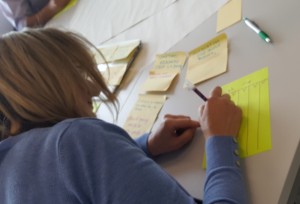
Bournemouth University is undertaking a large collaborative research study exploring issues of access to higher education. We are pleased to announce that members of the Fair Access Research project from BU and the University of Liverpool have had an article published in the influential Journal of Widening Participation and Lifelong Learning.
We explored how universities and colleges use research as part of their plans to widen participation and open up higher education to people from disadvantaged backgrounds. They found that while national policy is leading to more institutions mentioning research as part of their Access Agreements; it tends to be in the context of justifying spending rather than leading to significant behaviour change.
The most recent strategic guidance from the Office for Fair Access emphasised the importance of building a community of practice across institutions, with practitioners and academics working and learning together to understand effective practice and the impact of interventions.
It is hoped that when the 2017-18 access agreements are published over the coming months we see a sector engaging much more with research in order to transform thinking, practice and the sector as a whole.
For more information of this paper email Alex Wardrop (awardrop@bournemouth.ac.uk). For more information about the Fair Access Research project email Vanessa Heaslip (vheaslip@bournemouth.ac.uk) and Clive Hunt (chunt@bournemouth.ac.uk)
 Research in the news: how can research help improve access to higher education?
Research in the news: how can research help improve access to higher education?










 Expand Your Impact: Collaboration and Networking Workshops for Researchers
Expand Your Impact: Collaboration and Networking Workshops for Researchers Visiting Prof. Sujan Marahatta presenting at BU
Visiting Prof. Sujan Marahatta presenting at BU 3C Event: Research Culture, Community & Can you Guess Who? Thursday 26 March 1-2pm
3C Event: Research Culture, Community & Can you Guess Who? Thursday 26 March 1-2pm UKCGE Recognised Research Supervision Programme: Deadline Approaching
UKCGE Recognised Research Supervision Programme: Deadline Approaching ECR Funding Open Call: Research Culture & Community Grant – Apply now
ECR Funding Open Call: Research Culture & Community Grant – Apply now ECR Funding Open Call: Research Culture & Community Grant – Application Deadline Friday 12 December
ECR Funding Open Call: Research Culture & Community Grant – Application Deadline Friday 12 December MSCA Postdoctoral Fellowships 2025 Call
MSCA Postdoctoral Fellowships 2025 Call ERC Advanced Grant 2025 Webinar
ERC Advanced Grant 2025 Webinar Update on UKRO services
Update on UKRO services European research project exploring use of ‘virtual twins’ to better manage metabolic associated fatty liver disease
European research project exploring use of ‘virtual twins’ to better manage metabolic associated fatty liver disease